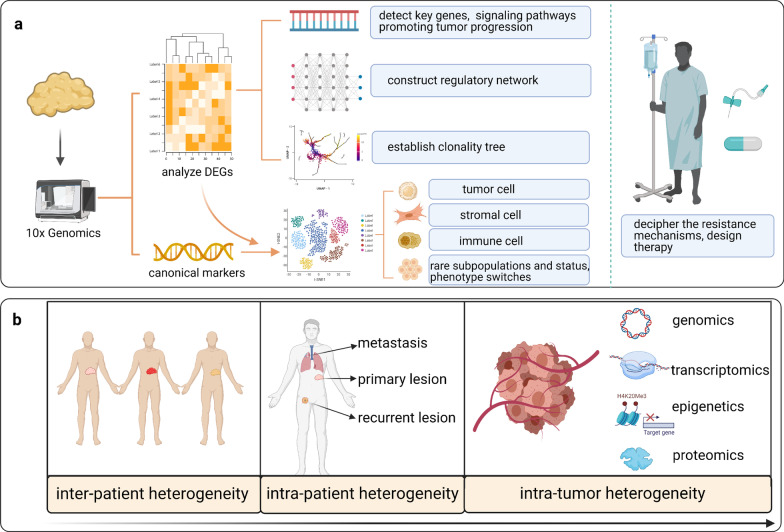Fig. 1.
Application of single-cell sequencing in delineating tumor heterogeneity and designing novel targeted therapies for patients with various tumors. a Single-cell sequencing can be used to analyze differentially expressed genes (DEGs), thereby detecting key genes and signaling pathways that are altered during tumor progression and constructing a regulatory network and clonality trees within tumor lesions. When DEGs are combined with canonical markers, the cells are clustered, which enables the identification of rare subpopulations, cell states and phenotype switches during tumor progression. Interrogation of the tumor microenvironment (TME) and heterogeneity enables the disclosure of therapeutic resistance mechanisms and the design of novel therapies. b Single-cell sequencing explores tumor heterogeneity at distinct levels, including the population, individual cell, tissue and molecular levels

